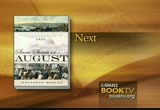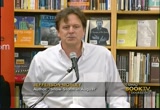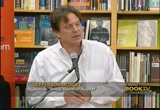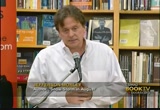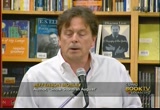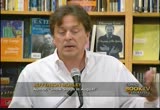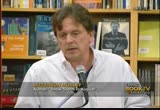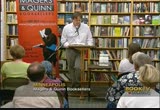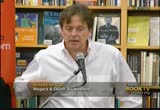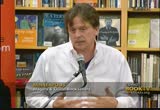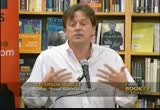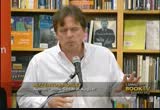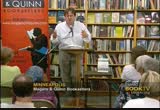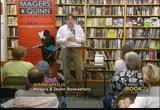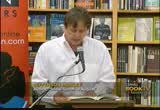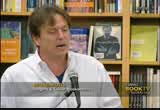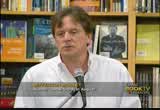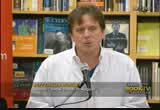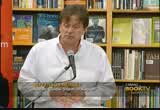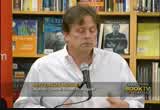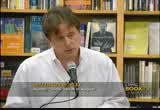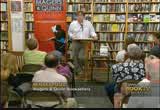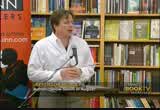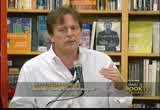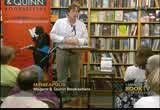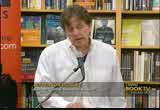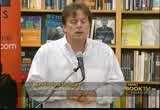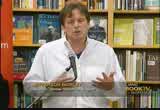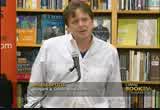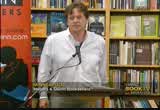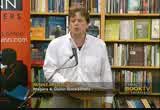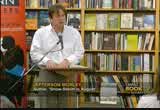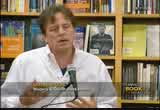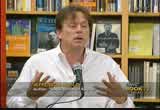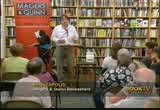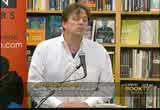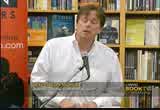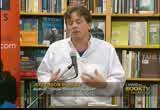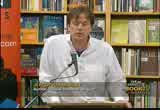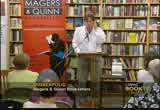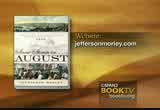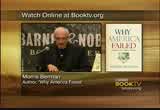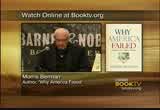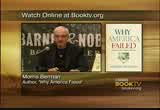tv Book TV CSPAN September 15, 2012 3:30pm-4:30pm EDT
3:30 pm
banner" and defended slavery in his prosecution and was thwarted by the alleged victim, anna thornton. her husband, william gordon designed the u.s. capitol. this is just over 50 minutes. [applause] >> thank you to c-span for hosting this event. they were never anything less than enthusiastic about having me. nevertheless, i landed here. i want to tell you a little bit about the book. book. it's nice to be here and see so many old familiar faces.
3:31 pm
minneapolis, i have this feeling of what a special place this was. there are a few people that probably remember the place is not agree with me. so it's always nice to be back with old friends. i will really date myself here. i even attended an advanced placement class at the old west high school, which is right down here on hennepin. you have to be really old to remember when the high school was there. [laughter] you know, people have asked me a lot, they said why did you write this book so long ago and i usually say because it is just a great story. it's a story of what happens in the events themselves are so amazing and as a writer, i would never dare to make them up. when i realized that they have all happened, but it was really
3:32 pm
terrific. this book with such a great story. as i got into the book, i realized it was more to the mat. the book had a more profound message. and that was with this book takes place between the revolutionary war period, the founding of the country in the late 18th century, and the civil war, which are the two great periods in american history to get written about. the period in between, you know, kind of ignored, and what i realized, as i was writing this book is very much everything you know about that period and what you have been taught about it is flat wrong. it's completely wrong. so i realized that part of this book is to tell people that. but everything you thought you understood is completely wrong.
3:33 pm
washington in 1835, 25 years before the civil war, you know, you'd think well, slavery was well entrenched, you know, the black people were miserable, the whites were kind of cruel and indifferent. and that is actually not true at all. in washington, washington had the majority of the black people were free, they were not slaves. out of the 12,000 black people, slightly more than half were free. some are prosperous and others were getting there fast. there was a man named lynch wormley. and he was a free black man from madagascar. there were a couple of other
3:34 pm
people. thomas cary and isaac cary. the cary brothers would sell anti-slavery publications on the site. and the hero of the book, beverly snow, ran the city's finest restaurant called epicurean meetinghouse. i kind of think of him as a barack obama, slightly ahead of its time. very clever and intelligent, a mixed-race man who comes out of nowhere in order to conquer and charm washington. to serve the washington we would they want, only to face a tremendous backlash. if you read the book, you will see some parallels to our own time there. but anyway, in this book, far from slavery being dominant in
3:35 pm
washington dc, it was actually receding and the forces of liberty were going. that is really part of what this book is about. the second thing you think is probably the civil war began in 1861 with the gunfire at fort sumter. that is when the shooting of the civil war began. the civil war began 30 years before that. it is in the early 1800s that the anti-slavery movement first comes to washington and the direct ideological conflict that leads to the civil war between the people who are poor slavery and those who are against it. it actually starts in this time in washington. you will see that is actually the case in this band of people,
3:36 pm
beverly snow, lynch wormley,, they are actually the ones who really start the fight against lavery that leads to the civil war and the great expansion of american freedom that that brought. this little group of black entrepreneurs, a man named ben lundy. he traveled around the country, and he had an anti-slavery newspaper called the genius of universal emancipation and he would travel around and most of the newspapers of the day really avoided the slavery issue and they didn't really want to get into it. then he went around the country and reported that, you know,
3:37 pm
here is how these slaves escaped. here is how the churches have caved in. he really did real investigative reporting is quite unprecedented at the time. antislavery sentiment come as this movement starts to grow in washington, who he has enough money to hire an assistant. he hires a promising young man from boston named william lloyd garrison. and he teaches william lloyd garrison about slavery. integrate irony, william lloyd garrison would become one of the most influential american journalists of the 19th century. he is a character in this book, too. another thing you probably think is the only thing that francis scott key did was write the lyrics to "the star spangled banner." wrong again. after he wrote the lyrics to "the star spangled banner", he went on to a long and very interesting career in politics, which is completely unknown to
3:38 pm
most people. francis scott key really was kind of a modern washington after he became famous in 1814 for writing the star-spangled banner as he did, he parlayed his fame into a lucrative law practice. and he parlayed that into a political connection and then he parlayed that into a job. that was the combination of francis scott key's political career when he was appointed to be the district attorney for the city of washington. what he did during that time, i wanted is as significant as writing the star-spangled banner, but it was very important. a known and unknown fact about him is that his best friend and brother in law was a man named roger.
3:39 pm
roger tawney. he ascended to jobs in the administration of andrew jackson. he helped them become the u.s. attorney general and the secretary of the treasury and in 1836 come the chief justice of the supreme court. he went on to write great scott decision in 1857, which effectively legalized slavery and hastened the coming of the civil war. so they were inseparable political figures in this period and influential and important and worry that it has been totally forgotten. in washington there is a key area in right by where it is is a park where key used to live. there is one that said that key was active in anti-slavery causes. this is flat wrong. it is completely wrong. it would be much accurate to say
3:40 pm
that he was active in suppressing anti-slavery causes. to remind people of all the things we really don't want to remember about our own history. this is also a book about the real francis scott key. but i don't want to give you the wrong impression. this book is not out to score points. it's mostly to tell the defense of washington in 1835 and 1836, which began on the night of august for, 1835, 177 years ago, a young man, a 19-year-old african-american man stumbles into the bedroom of his mistress from the woman who owns them, anna maria thornton, in the middle of the night, carrying an ax. and she is sleeping in the room with her servant, who is
3:41 pm
arthur's mother, the mother of the board who had just stumbled into the room. so the two women wake up, arthur's mother chews him out the door, slams the door, arthur is outside yelling that he's going to be free. the neighbors gather and arthur runs away in the word begins to spread. mrs. gordon has been attacked in her bedroom. this report comes at a very tense time in washington it is distributing anti-slavery publications to everybody in town, for the first time, the antislavery movement is really impressing upon people the reality of slavery with these written reports, very detailed, but what is really involved in the realities of slavery. so among the blacks and abolitionist whites, this is overdue. among a lot of whites, they fear that this is the first shot in a
3:42 pm
slave rebellion. and that arthur was part of the slave rebellion in attacking mrs. thorton. and they mock conversions on the square in washington and tries to lynch arthur. demanding that he be turned over. francis scott key comes to the defense of the jail and is trying to hold back the crowd. he is about to get overrun, when unfortunately, the secretary of the navy calls him, the federal troops, the navy, from the other side of washington, the troops march down pennsylvania avenue, surround the jail and push the crowd back and protect the jail. so that arthur will not be lynched. order is only temporary labor stored because the mobs began to
3:43 pm
split up and attack people, many black people who have property, the black churches, the black schools, the black poorhouses. the mobs were going to did good story. including, first and foremost, beverly snow's restaurant, which is a symbol of black success. the restaurant is in the heart of town. politicians, senators, the finest of high society, beverly snow is a well-known character and the mob, the fear of black success attacks beverly snow. she knew there was trouble coming. and she manages to escape and get away, but the mob trashes the restaurant, or sellout, then
3:44 pm
goes on the rampage and destroyed the city. it is quite a shocking event. it has totally been forgotten in the history of washington. i asked people if they had ever heard of the ride in 1835 in washington and i never met anyone who had. when you read the newspapers from you realize what a shocking event it was. it was the worst thing that had happened in washington since the british had invaded 20 years before in 1814. then he came in and destroy the white house and the library of congress and all that. this was comparable damage but have not been inflicted in that way for there was a lot of shame and remorse about how could this happen, a lot of re-examination. francis scott key was determined to pursue the agenda of the jackson administration, which is to make sure that the slave
3:45 pm
-- the slaves are going to run away, and so is district attorney, he has the job of establishing law and order. he does this in a couple of ways. the first thing that he does as he puts arthur bowen on trial for the attempted murder of mrs. thorton. he also puts on trial a white abolitionist and slavery men from new york, a doctor named reuben crandall who had been bringing a trunk load of publications to washington. and he wanted to send a message not just an anti-slavery forces in washington, but to the anti-slavery forces everywhere in the country. but the activities will not be tolerated at all. the book tells the story of how the right comes to pass, and then the story of the criminal trials that followed. when arthur bowen goes on trial
3:46 pm
in december of 1835, he is very by this time, mrs. thorton has come forward and come to the defense of her alleged affair. and she says in the trial, that arthur never lifted the accident should never believe that he intended to hurt her. but she felt safe in his presence. but he was just drunk and that she wanted the whole thing to go away. well, he was implacable and he didn't listen. he managed to get other people to override her testimony. and so arthur bowen is convicted and there is only one punishment for that. which is the death penalty. arthur bowen goes on to death row in january of 1836. he is sentenced to die in about
3:47 pm
a month. with the clock ticking, mrs. thorton said something even more unbelievable. it was amazing enough that she had testified on arthur's behalf in criminal trials, but now she goes out and starts recruiting her friends in high society of washington and she was a very prominent woman with many prominent friends, easy access to the leadership of the country. she went to van buren and said, the president, presidt jackson, tell him that he should part in arthur, you know, his mother is very good, the execution would be worse than the crime. and that she couldn't contemplate that arthur would be executed. and so the clock keeps on ticking down. i'm going to read you a little part of the book about what happened in february of 1836.
3:48 pm
in his cell, arthur bowen search for where to quell the fear of death. he hoped for a pardon from the president, but he had to be ready to did not happen. you have to make the truth of what was said all along. yes, he had a right to be free and liquor would destroy that freedom. arthur's protestation was that he never intended to harm mr. thorton. of course he had no intention. the drink gave him that intention, and unleashed the summer with them. john cook was a schoolteacher who kind of advise arthur about ways to get his freedom, but he was also a temperance man and told the young slave boy's, if you want to be free, you have to learn to read and write and you have to stop drinking. he decided to write a poem about his feelings of repentance.
3:49 pm
with pen and paper in hand, he sat in the dim light thinking about his friends from the racetrack, likely important to have some talent for writing. farewell, farewell, my young friend. each moment brings me near to my awful fate. he made a curious reference to his family. brought up by parents who were nice whose commands i would not obey. but plunged into temptations and vice. he admitted his folly and scolding of his teachers. at last i never thought it was doing wrong. to me was red my awful deeds into me i must be hanged. goodbye, goodbye, may god almighty please you all.
3:50 pm
please shut but if you're at arthur bowen's unhappy fall. the intelligence, which was the big newspaper in washington, published a copy. the editor of the hunter college in said it was very credible. everyone seemed to know that mrs. thorton's petition for arthur had been presented to president jackson. that mercy, which was in his power alone. the people awaited jackson's response with the deepest anxiety. so i would like to close with one note, just to bring this story back to the president. when the book was reviewed in the "washington post", the reviewer took an argument that i made in the book, which is that,
3:51 pm
as i spent more time writing the book, i realized that there was more similarity between the politics of the 1830s and our politics today. it really originates in this period. i agree quite strongly with that, with the reviewer's contention. he said that readers may find the element of the book chart. this anachronism as unhelpful at best, misleading at worst. i totally disagree. i think the similarities are quite clear. they really revolver on the timeless issues of american politics. it is no surprise that they are the same. then and now, americans argue
3:52 pm
about where property rights are. what kind of property rights as an individual have in the 1830s, that argument revolves around slavery. the people have the right to own property and people. the liberal forces which are restricted property rights, said no, there is no such thing as property. debates about citizenship as well, part of the debate about citizenship was did the blacks have the right to be citizens. it is like today's debates about illegal immigration. do these people deserve the right to be citizens? then and now, the conservatives took the restrictive position.
3:53 pm
american citizenship is reserved for a smaller group, for nativeborn americans. then as now, the liberals took a more expansive view. that citizenship is open to a greater number of people. it is a classic free speech argument that we still have today. he said no, we have to restrict free speech rights to protect our safety. forces, and then we will have slave rebellions and we will all be insecure. that is the same argument that free speech rights should be maximal. and we should worry about preserving free-speech rights. that is a strong theme that runs throughout the book. some people disagree.
3:54 pm
you can read this and decide for yourself. with that, i'm going to stop and maybe just answer any questions that people have about the book and what i have said so far. >> yes? >> when did you first come across this piece of history, and how long did you nurses before you decided to write a book? >> i first wrote about this in 1998. i was working on a story about a neighborhood historic preservation dispute. that is where i found the time. i went around and i asked people, i wrote a piece for the
3:55 pm
sunday night "washington post" in 2005. i always thought it was such a great story. in 2009 i got fired from a job. so i had been nurturing it all along. even after i wrote that in 2005, i always thought that i will write a book about this someday. and i have continued to read and do more research. so i nurtured it for a long time. then when i got the contract, that was three years ago, it took about two years research and finish the book. >> you mentioned william lloyd pearson.
3:56 pm
>> they wrote about specific7o traitors. originally, there was publishing in baltimore, which was a big slave trading town. they had articles about slave traders, one thing that this man was a guy who broke up families and sold off children -- that is what they wrote about. in both cases, the slave traders waylaid them after their article appeared, they beat the heck out of them and then when charges were filed in his case, the judge says he deserved it and dismissed the charges in the case. anderson's case, after beating garrison outcome of the slave trader also charged him with slander and libel. garrison was about to go on trial in baltimore in 1833 and
3:57 pm
knew that he was not going to get a fair trial, so he skipped town. he left and went back to boston and that's when he found the great anti-slavery publication in the united states. then he wrote an article about a story that was well-known in washington at the time. a black woman was walking across the bridge over the potomac and a constable started chasing her. the constable supplemented income by selling bikes into slavery for the woman ran away because she knew they were trying to kidnapper. she fell into the water and they got her body out and they buried her. so one man man wrote an article i cited and said here's the name of the constable.
3:58 pm
and the district attorney, if he won't do anything about it, congress should do something about it. he hit the roof and was furious. he immediately charged him with libel. he charged him and his printer, another white man who helped him on the article -- when they did the same thing to garrison. he was facing a thousand dollar fine. which would be like $20,000 or, $100,000 in today's money. and so he collected one last meal from his friends and he took all and went to philadelphia. so yes, the anti-slavery movement was very in battle throughout this time. that was his mission was to kind of drive these people out and suppress them.
3:59 pm
>> was there at this time what you call mainstream press outlets covering everything, including the evolution of it? [talking over each other] >> there were three daily newspapers in washington at the time. affecting three difficult and political tendencies. it was a weekly newspaper in georgetown, which was --ñ]ñmñ]ñm georgetown is now part of washington dc, but it was a separate municipality. political factions and government. they would talk about and they would write about slavery is the politics were playing out inw8w8 congress.wxwxw8w8wx someone presented a petitionw8w8 that the abuses of slavery -- i8
4:00 pm
would never write about that.v? >> what about the [inaudible] [talking over each other] >> it was very well covered.u868 it was shocking.ux nobody expected that to happen and there was a lot of7x recriminations today and who wa] responsible, they should be did the newspapers to a mechanic.w;: a mechanic with any kind of 7:rking man.7:v86]6]v8w:6]v8 the mechanics got together, at least some of them and said how: dare you say that we did7: this8 so there were lots ofu85yu8u86> recriminations, and that6z wasu8 covered.u858u8wz78u8wx6]u8 but, what happened to beverly snow? ñ]body ever wrote aboutux that.
4:01 pm
4:02 pm
she was a leading lady. they wouldn't write about what she was doing directly, you could tell word had gotten around that mrs. thornton was trying to help arthur. you could see that. nobody ever wrote an article about that but you heard that throughout the press coverage of the time. >> a couple questions. you talk a lot about the different parallels between then and now and i would be interested -- race then and now are and what parallels you might see and also talking about then and now and something like we are condemned to repeat history. is that your conclusion? or we can learn?
4:03 pm
>> yes. the politics of race are central and when i talk about those principles that we debate in red/blue liberal conservative division, raise run through those and that is a big part of it. day when president obama on pennsylvania avenue gets out and walk down the street watching tv nobody knows it. not even barack obama himself. this is the quintessential obama story and nobody knows it. this doesn't directly answer your question but this idea of success is written now.
4:04 pm
religiously forgotten. that is the only explanation why this story is not known or why nobody knows the story of beverly snow. are we condemned to repeat it? the obama experience tells you these continuities run very deep. the backlash against obama is beverly snow. obama is the president. he is not running a restaurant. haven't changed that much. >> beyond the scope of the book but was there any organized or mobilized response from the black community at the time?
4:05 pm
was it basically everybody running and hiding? >> isaac harry who was a barber and properly -- probably beverly snow's best friend, filed a crackdown on black business after this happened. herbert leave the white authority, the response was to crack down black business and the night blacks the right to own licenses to in his case selling perfume in a barbershop and wanted to keep license to sell perfume and he won that case. the riot was very discouraging for washington. the most able and successful
4:06 pm
went to toronto. thomas and i carry ended up in toronto. they reached the limits of what the fossils -- possible. they were not going to go any farther so they moved on. >> say something about your frustrations and triumph ofs -- triumphs. >> i knew like your question i was going to do this book and one reason i knew was the forces were so interesting. there were so many good sources. probably first and foremost was anna thornton was 55 years old. she has been keeping a diary of her life for close to 30 years. pretty much wrote down every day five day week or six day the week what happened in her life. this is not an emotional diary. she was not an expressive person but she said what happened in
4:07 pm
her life. john quincy adams came over and we played chess. she read mary shelley, frankenstein. she thought that was very morbid. $0.12 for a dozen eggs and she wrote down everything. for recreating daily life this was an extraordinary source and made me realize i was going to be able to recreate daily life in a very intense realistic way. i didn't want to write about politicians. i wanted to write about the way people lived in washington. this became a mission of mine in this research to write a book about living in washington and not about washington politics. day the newspapers where an abundant source of information because there were so many of them and there were different tendencies and they would look
4:08 pm
at things slightly differently and you could get a lot of information that way. spent a lot of time in the national archives and they fell a docket book for the circuit court at the time so you could find out who was breaking the law and how they were breaking the law and who was suing each other and how did it goes so that. you could get a real sense of the texture of daily life and the last thing was the property tax, big bound volumes and there i could track -- i could see beverly snow getting richer by the year. when he comes to town there is an effort -- the second year two hundred. the third year three hundred. making $300 a year at that time you're moving into the middle class. you could track characters that way. that was another way i've learned a lot about the
4:09 pm
characters in this book and there was francis scott key himself. everybody knows his name but there hasn't been a biography of him written since 1939. there was a lot about francis scott key lying around and when i was doing this research i found in the court records -- i found -- in my hands i have 100 autographs of francis scott key. that was -- the thing that i think i am most proud of is figuring out who beverly snow was through his advertising. he left no records. he left no diary or letters. wherever he went he seemed to attract attention because people always had anecdotes about him but i didn't know that much about him.
4:10 pm
i had seen some of the ads and i realized you need to go back and read every single newspaper and everything glad because that is going to be where he expressed it. they are very funny and you really get a sense of the man. one of his favorite ads was health made cheap and he was selling the idea of health food in the 1830s. this food is not only good but good for him. a very modern idea. beverly snow in the true washington tradition was a man of self-promotion. he was great at it. self invented american. that is the thing that i like the most about this book because of person nobody knew existed actually comes to life and realize what a great and unusual person he was and there he is on the pages of the book. >> did you compile the book all at once and then compiled a book or did you compile the book as you went and revise it?
4:11 pm
if you were overwhelmed with information. >> i had written the magazine article so i had expressed it but when i started to write the book i decided i would not start writing right away and spend nine months just doing research and the idea was to get everything in place and don't try to start too early and once i had that in place i wasn't overwhelmed. it took a while. there were three drafts of this book, three versions of its. took a while to get it under control and figure out what was most important and what could be cut out. one version was 700 pages long. by the end it was probably 300 manuscript pages long. a lot got left out. -- it took awhile to get the
4:12 pm
material under control for sure. >> did you use a filing system or a geological stratification system? >> what i did was i made a final and had a separate file folder for the key period of the book which is 1835-1836. i have a folder for every day of the year and every newspaper article i would put it in to that and when the time came and i was writing -- i could just pull out a we can have all the newspaper articles in a row and ready to tell the story like that. page. at a blank page. you don't know where to begin or what to do. you always want to have. notes in front of you so really what you are doing is adding the
4:13 pm
notes and turning notes into prose so you are never looking at a blank page. that is how you get going on it. >> did you do this by hard copy? >> a little bit of both. i like having paper copies. when i started and i was reading the newspaper at the library of where newspaper. at some point i had a parallel, two parallel system is. it was inefficient but that was the only way to do it and there were things that i had found in letters and things like that that i would make copies of but never turn them into things that go into the computer. in the digital world still have
4:14 pm
texture. the change of the city of washington 1835, 30,000 people. twelve thousand are african-american. of the 12,000 how many are free? >> 6,000 plus. a majority by -- >> there is an exodus after this event. what changes? >> that trend continues. the black population in washington continues to grow and by the beginning of the civil war free black people outnumber slaves in washington by 4:1. in the next 20 years because you black person in virginia and got you could be sold back into slavery and those people once they got -- they were not going
4:15 pm
though there was slavery. it is an alien culture. slavery was legal. surprise to me. this was not plantation slavery. mrs. thornton had a servant who was her driver and was the jack of all trades and fixed the wagon and did all of that. george plant had a wife who was freed in georgetown and had four kids and they were free and he would go home at night and in the morning he would go and was a slave who communicated but that was one of the variations
4:16 pm
of slavery in washington at that time. also a lot of slaves made money by their owners would hire them out. the owner would say you would be hired out to the honor of a hotel. you would be a waiter in a hotel. the owner of the hotel would pay your own your wages but you were there. you could make tips and control your time so it was a much more fluid thing. that is why the anti slavery movement could get going because there was more room to operate and this was one of the things key was upset about that these corners of freedom, everybody understood that would be the total -- that was the foot in the door to greater freedom and that is what they were trying to repress. this was when the real ideological struggle begins when slave power is determined to stamp out anti slavery forces
4:17 pm
continuing to organize and appeal to public opinion and gain strength and that is the fight that grinds on and eventually culminates in the civil war 20 years later. >> your commuter in that term. would that be more like someone freedom? owner. figured this out. he had a term written into his be free when he was 30. when he was 30 he bought his freedom for five dollars but legally is due.
4:18 pm
there were white indentured service the that was dying out by the 1830s. they got their freedom in different ways. sometimes it was given to you. when people died a free their slaves. sometimes they said slaves would have to pay the going rate. 4 young person that could be $800 or thousand dollars which was a lot of money. you could live for a couple years on a thousand dollars. slavery, bubba watson permutations of slavery in washington. is amazing to think about but there's no doubt about it. washington was a more racially integrated city in 1835 that it is in 2012. there were no black neighborhoods in washington in
4:19 pm
1835. blacks and whites were intermingled. there were black blocks and things like that and there was no that is a black neighborhood. that did not existed that time. >> the know the degree of black literacy at this time? >> it is very hard to tell. john cook was a free black man. she was the smartest black guy in town everybody agreed and he was the teacher at the school and he organized a little group of four young men which are there boeing was part of which is trying to teach them. and he had a school and the son of lynch warmlee at a school. there was education, what
4:20 pm
percentage, it was literate if he could have written a poem and misses the.in had taught him to read and write. how common that was i don't know. hard to say. it was not unknown that black people were illiterate, even slaves. anybody else? who taught parter how to read and write. thornton's personal servant and
4:22 pm
4:23 pm
paper? >> after writing this book, many. i am sure they are there and they could be surprising. i am still looking for it. okay? lessons you got or is there another one? >> that was the big one. the way history is taught can be so misleading and the key is to get the reality of how people live. not the paula tax or the way history is construed to but what is the day today life of the people? thank you. [applause] >> for more information visit
4:24 pm
jeffersonmorley.com. >> thank you for hosting this so we can get together and talk about issues i think are very important. there seems to be some confusion in the united states. people don't realize america failed. they think it is going non. someone said to me i didn't know america failed, around. i wanted to locate this particular talk in terms of the stuff i have been riding. this is the third in a trilogy on the american empire. the first one was the twilight of american culture published in the year 2000. and this came out of month ago.
4:25 pm
why america failed. there was a collection of essays that i published a year ago. so that it came between book 2 and book 3. half of the essays are about the united states. i want to encourage you to have a look at that. is the question of values. there is material that is not in any of the other books but deals with the kind of unconscious programming americans have that leads them to do the things that they do whether they are the person in the streets or the president. that completes the picture and that will encourage you to have a look. the title of this talk is the way we live today. despite great pressure to conform in the united states to celebrate in the best system in the world, the nation does not
4:26 pm
lack for critics. the last two decades have seen numerous works criticizing u.s. domestic policy in particular economic policy. the american educational system, the court system, military and the media and corporate influence over american life. most of this is very astute and i learned much from these studies the two things in particular are lacking in my opinion and have a hard time making it into the public eye. partly because americans are not trained to think in a holistic or synthetic fashion and partly because the analysis i have in mind is too close to the bone. very difficult for americans to hear it and somebody would say i didn't know it failed. the first thing is an integration of the various factors that have done the country in. these studies are institution
4:27 pm
specific as if the institution under examination existed in a kind of vacuum and could really be understood apart from other institutions. the other thing i find lacking is a relationship to the culture at large to the values and behavior as americans manifest on a daily basis. as a result these critiques are finally superficial. they don't go to the root of the problem and this avoidance enables them to be optimistic which in fact places them in the american mainstream. the authors often conclude these studies with practical recommendations as to how the particular institutional disfunction they have identified can be rectified. they are as a result not much of a threat. usually mechanical analysis with a mechanical solution. if the office were to realize these problems do not exist in a vacuum but related to the other problems and are firmly rooted in the nature of american culture itself. in its dna.
4:28 pm
the prognosis would not be so rosy. it would be clear there is -- turning things around are not an option at this point. michael more and gnome chomsky. they have done a lot to raise awareness in the united states to show foreign and domestic policy as pursued are dead ends or worse. the both of these men assumed the problem is from the top, from the pentagon and the corporation which is partly true of course. the problem is that this rests on a theory of false consciousness. the belief that these institutions have pulled bowl over the eyes of the average american citizen who is ultimately rational and well intentioned. i would say get out and talk to some people, find out how accurate it is. for them the solution is one of education. pull the wool away from the eyes
4:29 pm
and the citizenry will spontaneously awaken and commit itself to some sort of populist or democratic social vision. is that happening with occupy wall street? an important question that we should talk about in the q&a. my point is what if it turns out the war is the eyes? the so-called average citizen really does want as janis joplin put it a mercedes-benz. probably not much else. he or she is grateful to the corporations for supplying us with oceans of consumer goods and to the pentagon for protecting us from those awful arabs working in the middle east. and the possibilities for fundamental change appear to be quite small. what would be called a set of different institutions in a different type of culture. personally i doubt there's much chance of that. america is what it
192 Views
IN COLLECTIONS
CSPAN2 Television Archive
Television Archive  Television Archive News Search Service
Television Archive News Search Service 
Uploaded by TV Archive on

 Live Music Archive
Live Music Archive Librivox Free Audio
Librivox Free Audio Metropolitan Museum
Metropolitan Museum Cleveland Museum of Art
Cleveland Museum of Art Internet Arcade
Internet Arcade Console Living Room
Console Living Room Books to Borrow
Books to Borrow Open Library
Open Library TV News
TV News Understanding 9/11
Understanding 9/11